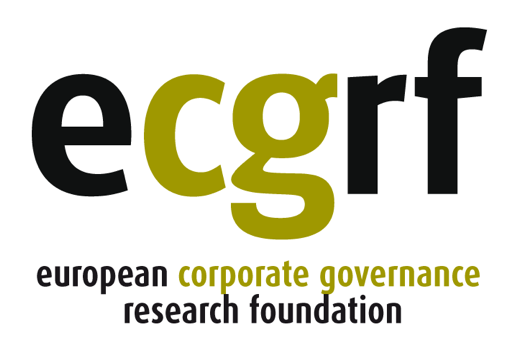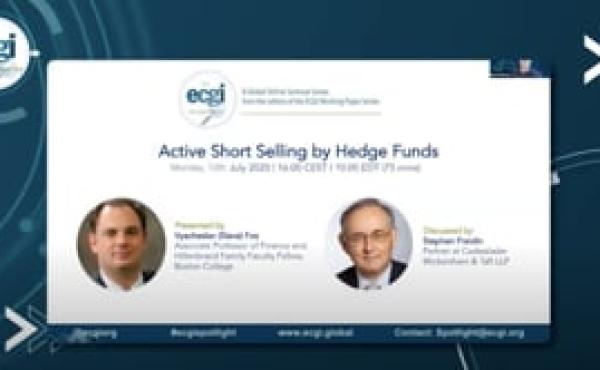
Active Short Selling by Hedge Funds
The inaugural seminar in the ECGI Spotlight Series took place on 13 July 2020. The series was introduced by the Chair of ECGI, Professor Lucrezia Reichlin and the Executive Director, Professor Marco Becht.
ABOUT THIS EVENT
Short sellers play an important role in the transmission of negative information into price. Because short selling leads to negative price pressure, short sellers have been cast as villains throughout history. Following the crash of 1929, for example, the U.S. Senate released the names of large short sellers in an attempt to brand them as “unpatriotic.” Perhaps because of this negative sentiment, investors are often reluctant to publicly disclose short positions.
Yet, recent years have seen a new phenomenon: high-profile short-selling campaigns by hedge funds. David Einhorn's short of Allied Capital provides an illustrative example. In May of 2002, Einhorn announced a short position in Allied at an investment conference, arguing the firm engaged in questionable accounting practices. Allied's stock price dropped by over 10% the following day, and by the next month its short interest increased sixfold.
In this study, the authors undertake a comprehensive analysis of short-selling campaigns by hedge funds, showing that, consistent with anecdotal evidence, the prevalence of campaigns has increased considerably in recent years. They also find that such campaigns are associated with abnormal returns for targets of approximately -7% as well as changes in the behaviour of stakeholders (e.g., other short sellers). Campaigns are primarily undertaken by activist hedge funds, particularly those that have more experience or employ hostile tactics.
The ECGI Spotlight Series is a global online seminar programme highlighting chosen papers from the ECGI Working Paper Series.
Spotlight Team:
Mike Burkart (Editor) | Miriam Schwartz-Ziv | Amir Licht (Editor) | Tom Vos
Contact: Spotlight@ecgi.org
Supported by
Programme
Welcome and Spotlight Series launch
Speaker(s)
Introductory remarks
Speaker(s)
Active Short Selling by Hedge Funds
Speaker(s)
Discussant
Guest Panel
Moderator
Discussion and Q&A
Speakers
Vyacheslav Fos
Ronald Gilson
Wei Jiang
Alexander Ljungqvist
Mike Burkart
Marco Becht
Lucrezia Reichlin
Presentations
Contact




























